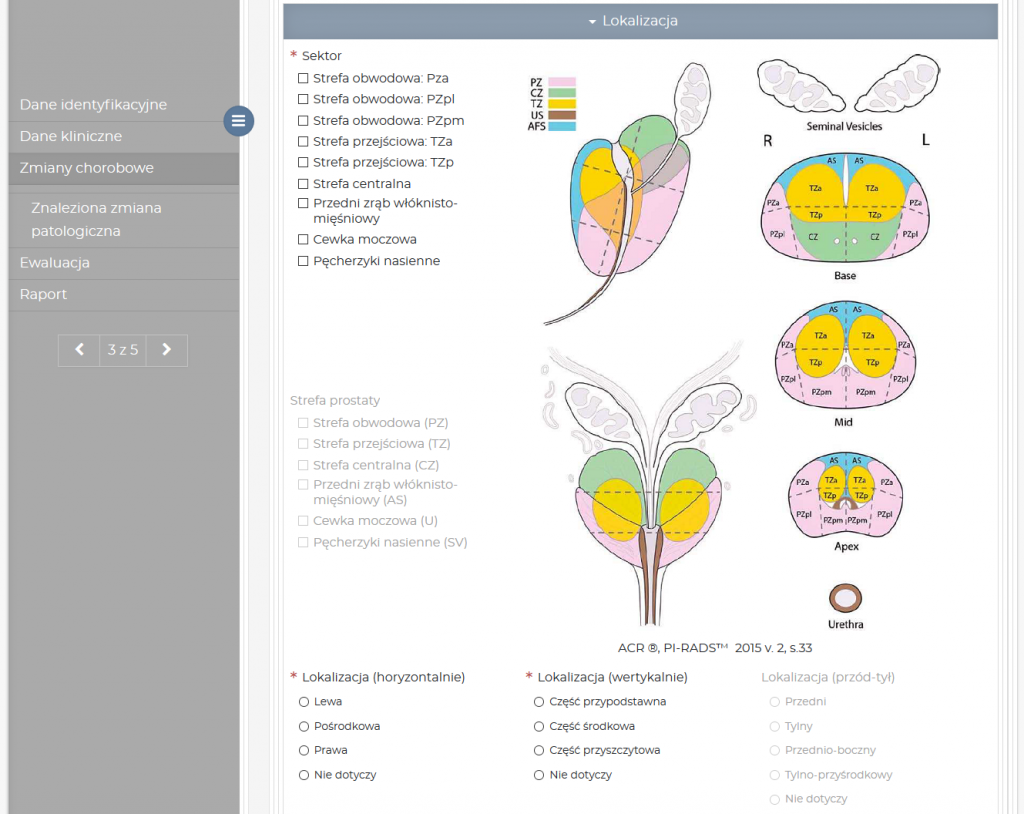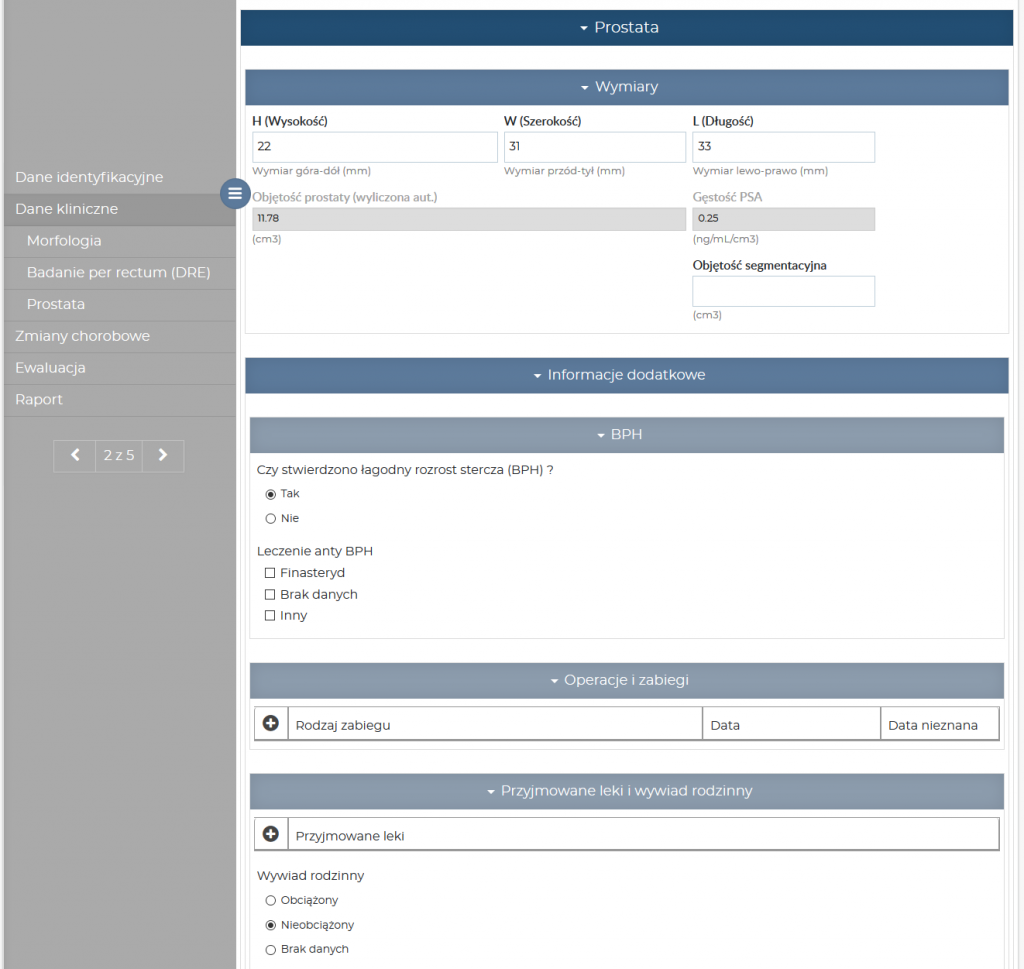Platform for research on the standardisation of medical examination descriptions
- introduces standardisation of radiographic examination descriptions;
- facilitates preparation of examination descriptions with the use of a well-structured form of report generation (using interactive diagrams, checkboxes and other aids);
- facilitates the work of specialists by generating automatic radiographic examination reports;
- allows for the automatic classification and segmentation of organ lesions with the use of deep neural networks;
- is scalable; the system has been fitted with a continuously improved, PI-RADS standardised module for the structural reporting of prostate gland lesions on multiparametric magnetic resonance imaging (mpMRI) scans.
The project is conducted by the Laboratory of Applied Artificial Intelligence in collaboration with:
- Centre of Postgraduate Medical Education (Warsaw),
- Lower Silesian Oncology Center (Wrocław).
Research and development
Pilot tests of the eRADS system conducted between July and September 2020 involved six radiologists with various degrees of experience. The purpose of the tests was to evaluate the reliability and preliminary clinical utility of the eRADS system by analysing the impact of the tool on the diagnostic decision-making process, including assessment of the accuracy and consistency of the decisions made. The tests focused on the module for reporting neoplastic prostate gland lesions on mpMRI scans. The radiologists involved in the pilot tests have also been invited to participate in a UX test, which will soon allow the system interface to be optimised by adapting the form of reporting to users’ requirements, taking account of the specific character of radiologists’ work.
Artificial intelligence to fight cancer
The objective of the project is to support radiologists in diagnosing lesions with the use of medical imaging. The system facilitates and accelerates diagnostic procedures by assisting in the discovery and description of lesions, and by generating reports from radiographic examinations. The project aims to standardise descriptions of examination results, which will enhance communication between radiologists and clinicians, and lead to improved patient care. Additionally, eRADS supports the creation of reliable, well-described reference datasets which may be used to develop scientific research on cancer diagnosis and treatment methods.

